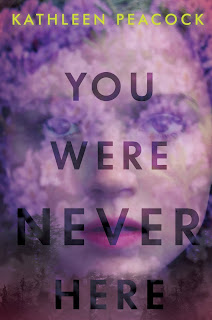As 2020 comes to a close, I've been thinking a lot about the people in my life who have mentored me in my writing life.
2020 has been a rough year.
To get myself through some of the darkest days, I have tried hard to count my blessings.
And in terms of my writing life, those blessings are about the people who've mentored me.
Some of them know they have, others may suspect they have, and some have no idea, but they have all had a positive impact on my writing life, either through their support, how they inspire me, or by telling me the truth about how things could be better.
It's important to reflect on those people who've helped us along the way, for it reminds us that we can mentor others in the same way.
So here's my list. I'd love to hear about yours!
My family
My mother and sister and cousins encouraged me to write, even when I forced them to read such amazing books as BlueTop Orphanag. Where is the e? Who knows? I was nine years old!
We need our families to support us on this journey, and the family I was born into, and my current family (a husband and two kids) surely do that for me!
Teachers/Librarians
I must have tortured my poor language arts teacher, Mrs. Garnett.
Every day I showed up with a new story, a new poem, a book I wanted to talk to her about.
And every day, she listened patiently, gave me constructive criticism, and told me to keep going.
I did.
Meanwhile, down the hallway, our school librarian, Mrs. Smythe, allowed me to bring way more books home with me than should have been allowed. The town librarian did the same. I was a voracious reader, and tried to write a version of almost every book I read.
The magic of encouragement by someone who isn't your family is invaluable to a budding writer, and Mrs. Garnett was so important to me that I made her a character (with her permission) in my first book, It's a Mystery, Pig Face!
Other Writers
Every book I read influences me in some way.
And the books I love best, inspire me to up my game.
I've been fortunate to get to know many writers over my writing journey and every single one of them has made a huge difference in my writing.
These authors may not know that they've mentored me, but their kindness, and great books, have taught me SO much about writing! This isn't an exhaustive list, but contains some special people who often go above and beyond.
Agents and Editors
How would I describe my agent? She is the VOICE OF REASON. She helps me cull ridiculous ideas and build on those that are worthwhile, all while being stunningly optimistic. Everyone should have such a wonderful being in their writing life!
On the other hand, editors are the voyageurs, the intrepid adventurers who guide you and your book through hostile territories, pushing you onwards until you reach the real essence of the story. Miracle workers, really, they are equal parts Drill Sergeant and Truth-Teller, the kick in the pants you don't want but are lucky to get.
My agent and my editors have taught me so much, and have lead me through the jungle on MANY occasions!
via GIPHY
Readers
Finally, some of my greatest writing mentors have been the children who read my books.
Their enthusiasm, and their truth-telling, makes me want to improve every day!
My happiest moment is when they come up with a suggestion or question that blows me away.
They are the giver of ideas, and my inspiration!
Writing often feels like such a solitary pursuit, but when I think of my mentors, I am reminded that every book is lifted up by a whole team of supporters who inspire, guide, cajole, and ultimately celebrate my writing journey.
Oprah Winfrey once said: "A mentor is someone who allows you to see the hope inside yourself.”
I wish you the best in 2021 and that you find the hope you need to keep going on YOUR writing journey!









































